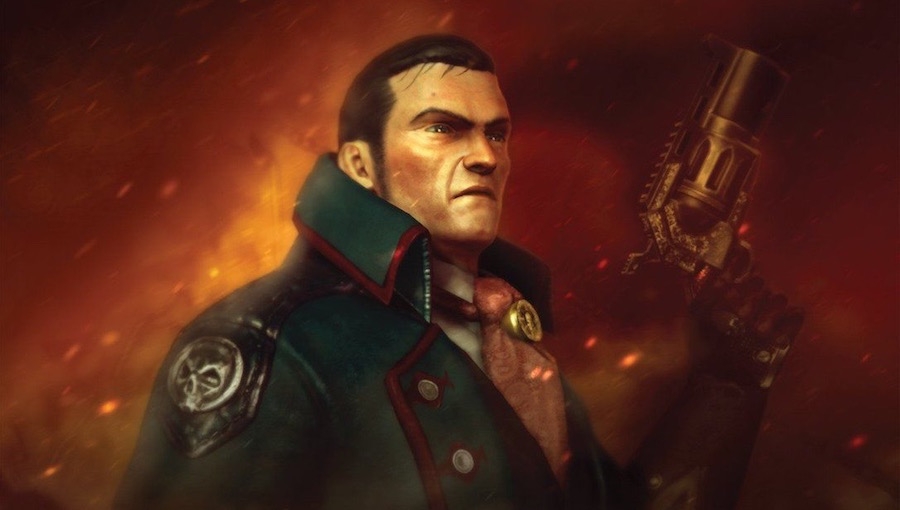The following is an interview with Ryan O’Sullivan, writer of Eisenhorn: Xenos, the new comic book adaptation of Pixel Hero Games and Games Workshop’s recently released video game. In this interview, Fanbase Press Editor-in-Chief Barbra Dillon chats with O’Sullivan about the premise of the comic, working with a previously established property, the creative process of working with Pixel Hero Games and Games Workshop, what he hopes readers will take away from the series, and more!
Barbra Dillon, Fanbase Press Editor-in-Chief: Congratulations on the recent release of Eisenhorn: Xenos through TPub Comics! For our readers who may be unfamiliar with the story, how would you describe its premise?
Ryan O’Sullivan: It’s a fantasy story in a sci-fi setting. That’s how I’ve always explained Eisenhorn and the universe he inhabits. He’s essentially a medieval witch hunter who also happens to have a space ship and lots of guns. (although most of the time he seems to prefer using his sword…).
BD: The comic book was adapted from the recently released video game through Pixel Hero Games and Games Workshop, based on the novels of the same name. How did you come to work on the comic book adaptation, and have you worked extensively with Pixel Hero Games and Games Workshop to recreate the world?
RS: First time working with both companies, but I’ve been a huge fan of the Games Workshop properties from a very young age. Space marines, orks, inquisitors, and all the rest have been a part of my life for a long time. TPub Comics knew this, so when the opportunity to publish a comic based around Eisenhorn came up, they were kind enough to offer it to me.
BD: How would you describe your creative process in working with one another, especially on a previously existing franchise?
RS: Anytime I start a new project with an artist, I look through their existing work to get a feel for the sort of thing they like drawing. I look at their strengths and then I write a script to play to that. I think you can get more out of an artist by tailoring a script for them specifically. The idea of just writing a script blind, or without an artist in mind, is to completely misunderstand the role of the writer in this medium.
For example, I know Anthony Spay is great with detailed backgrounds and cleverly choreographed fight scenes, so I tried to include as much of them as possible.
BD: What do you hope that readers will take away from the comic?
RS: I’d like them to want to explore the world of Eisenhorn more. The comic is simultaneously a prequel to both the video game by Pixel Hero Games, as well as a series of novels by The Black Library. So, if the comic gets people interested in the further adventures of Eisenhorn, then it’s done its job. But I don’t like to think of stories in such a utilitarian way. The comic is a stand-alone story, so it’s my hope that readers appreciate it for that above everything else.
BD: What makes publisher TPub a great home for Eisenhorn: Xenos?
RS: The British sensibilities, I suppose. The Games Workshop properties were all born in the UK, and they have a certain amount of dark humor to them that is second nature to us.
BD: Are there any upcoming projects on which you are currently working that you would like to share with our readers?
RS: Very early days on most of the stuff I’m working on, so I can’t really divulge anything.
I will namedrop one, however: White Noise.
BD: Lastly, what is the best way for our readers to find more information about Eisenhorn: Xenos and your other work?
RS: I have a website I rarely update that you could check out. Failing that, you can check out a graphic novel I recently released with comic book artist Plaid Klaus over at www.turncoatcomic.com.
Honestly, the best place to find out what I’m up to is probably my Twitter. It’s all on there.

